
Merck, the manufacturer of pembrolizumab, announced that it would be withdrawing the agent’s indication for the treatment of patients with previously treated SCLC.

Your AI-Trained Oncology Knowledge Connection!


Merck, the manufacturer of pembrolizumab, announced that it would be withdrawing the agent’s indication for the treatment of patients with previously treated SCLC.

The developers of an oral formulation of paclitaxel will have to revisit efficacy and safety data in order to provide sufficient evidence for FDA approval.

Based on phase 2 data, the FDA granted accelerated approval to melphalan flufenamide in combination with dexamethasone for the treatment of multiple myeloma following 4 or more prior lines of therapy.

The first single shot COVID-19 vaccine, and the third overall, to receive Emergency Use Authorization will start shipping to all parts of the United States immediately following a meeting of the FDA’s Vaccines and Related Biological Products Advisory Committee.

Study results from the Journal of Medical Internet Research indicated that medication adherence by way of reminders on mobile devices for patients with acute lymphoblastic leukemia and their caregivers may have validity.

Results of a phase 2 trial testing the efficacy of idecabtagene vicleucel in patients with heavily pretreated myeloma are reported.

Based on an exploratory analysis of a phase 2 trial, lenvatinib plus everolimus appears to be an acceptable treatment option for patients receiving prior immunotherapy for clear cell renal cell carcinoma.

The PD-1 inhibitor cemiplimab was granted approval in patients with advanced basal cell carcinoma previously treated with a hedgehog pathway inhibitor or for whom these therapies are not appropriate.

Lisocabtagene maraleucel receives FDA approval for its first indication in patients with large B-cell lymphoma.

A cancer care expert from The Ohio State University Comprehensive Cancer Hospital talks about what patients and their providers need to know about the COVID-19 vaccine.

CancerNetwork® reviews the biggest news on initiatives and advancements in cancer care on World Cancer Day.
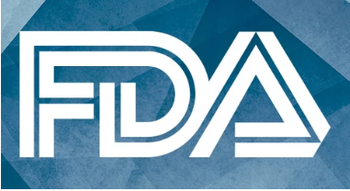
Based on results of the VISION study, the FDA has granted accelerated approval to tepotinib for MET exon 14 skipping altered metastatic non–small cell lung cancer.

Results of the phase 1 CHRYSALIS trial demonstrated the safety and efficacy of amivantamab in patients with previously treated non–small cell lung cancer harboring EGFR exon 20 insertion mutations.

Supporting previously reported data, updated results of the phase 3 KEYNOTE-189 trial indicate that overall survival is significantly improved when pembrolizumab is added to platinum-based chemotherapy in the frontline treatment of patients with metastatic nonsqamous NSCLC.

Just over a month after the FDA issued Emergency Use Authorization to the first mRNA vaccine for COVID-19, the National Comprehensive Cancer Network released initial recommendations for its use in patients with cancer.

Imagio, a diagnostic tool that uses novel technology to provide real-time information on suspicious lesions in the breast, is OK’d by the FDA.

The FDA granted approval to the combination use of cabozantinib plus nivolumab ahead of its February PDUFA date as therapy for the first-line treatment of patients with advanced renal cell carcinoma.
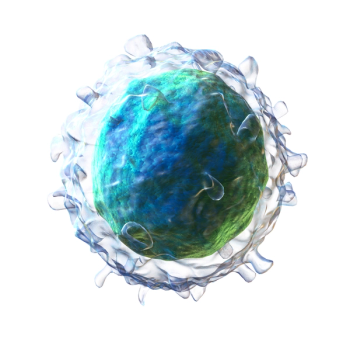
Findings from a phase 1/2 trial indicate that lisocabtagene maraleucel plus ibrutinib may represent a viable treatment option for patients with heavily pretreated chronic lymphocytic leukemia or small lymphocytic lymphoma and high-risk disease features.

The Breast Cancer Index assay is the only of its kind to be recommended in the National Comprehensive Cancer Network Guidelines for the treatment of breast cancer as being predictive of extended adjuvant endocrine therapy.
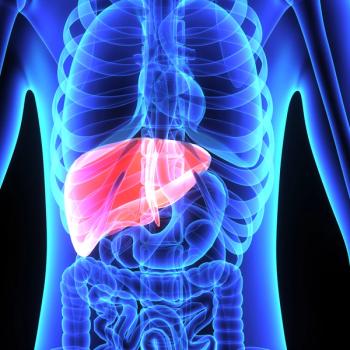
Results of a phase 2 trial presented at the 2021 ASCO Gastrointestinal Cancers Symposium show promise for immunotherapy treatment involving pembrolizumab in patients with HCC receiving no prior systemic therapy.

Crizotinib—a tyrosine kinase inhibitor with activity against ALK, ROS1, and MET—was granted FDA approval for use in pediatric patients with relapsed or refractory ALK-positive anaplastic large cell lymphoma.
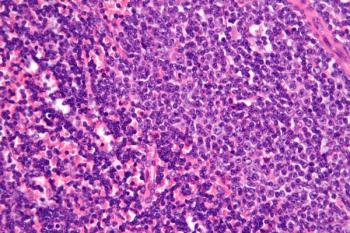
A recent study revealed that by using standardized uptake value thresholds as determined by 2-[18F]-FDG PET/CT, investigators were able to predict the occurrence of Richter syndrome in patients with CLL.

The addition of the monoclonal antibody blinatumomab to hyper-CVAD could represent a potential option for extending remission times in patients with Philadelphia chromosome–negative B-cell acute lymphoblastic leukemia.

In response to the drug’s developer, the FDA added overall survival and other end point data to the label of darolutamide for its indication for treating patients with nonmetastatic castration-resistant prostate cancer who are receiving standard androgen-deprivation therapy.
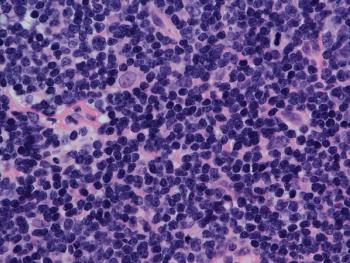
Investigators on the BRUIN trial reported impressive response rates across multiple B-cell malignancies with the use of the Bruton tyrosine kinase inhibitor LOXO-305, especially in those with heavily pretreated mantle cell lymphoma.

ARX788 received a nod from the FDA early in 2021 based on promising preclinical and phase 1 trial data demonstrating its efficacy in patients with HER2-positive breast cancer following progression on other agents.

Frontline pembrolizumab (Keytruda) plus chemotherapy for patients with advanced triple-negative breast cancer showed efficacy across key subgroups, including patients with PD-L1 expression by combined positive score.

A retrospective exploratory analysis found that intrinsic tumor subtype was associated with prognosis in patients with hormone receptor–positive, HER2-negative advanced breast cancer who received the CDK4/6 inhibitor ribociclib.

Patients with heavily pretreated multiple myeloma maintained durable responses with idecabtagene vicleucel, according to updated findings presented from the phase 1 CRB-401 trial.

In our lung cancer quiz, you’ll get to test your knowledge on the phase 3 ALESIA study.